UNJournal Jon Lee | “The Philippines and South Korea signed the Free Trade Agreement (FTA) on Sept. 7, 2023. The enhance partnership supported by the FTA can lead to more strategic investments in priority sectors and industries for both the Philippines and Korea,” said Amb. Theresa Dizon-De Vega of the Philippines in Seoul.
In an exclusive interview with UN Journal, the sister media of Diplomacy Journal, Amb. Dizon-De Vega said, “The Philippines’ Department of Trade and Industry has already begun actively promoting Korean investments particularly in industries or sectors where South Korea is considered a global technology leader, for example in battery manufacturing and vaccine production.”
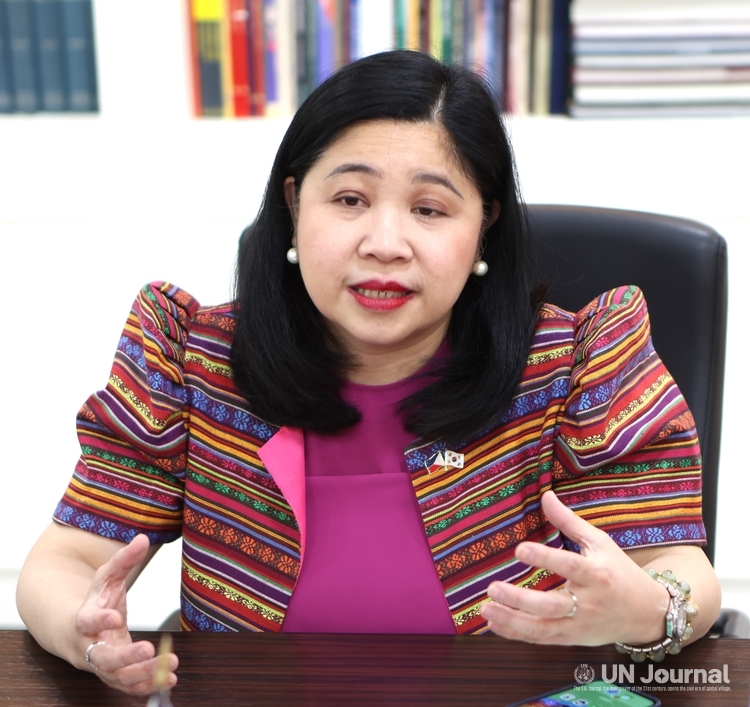
She continued to say, “Through the FTA, we expect to significantly boost opportunities in these sectors especially given the comprehensive framework for cooperation through the Economic and Technical Cooperation chapter.”
Noting that Korea was the number one source of inbound international visitors to the Philippines, Amb. Dizon-De Vega said, “The top tourism destinations in the Philippines for Korean visitors remain Cebu, Manila, Clark, Boracay, Bohol, and Baguio. All these places boost amazing leisure, beach, and nature tourism sites which many Koreans into eco-tourism, sports, adventure tourism, and diving can enjoy.”
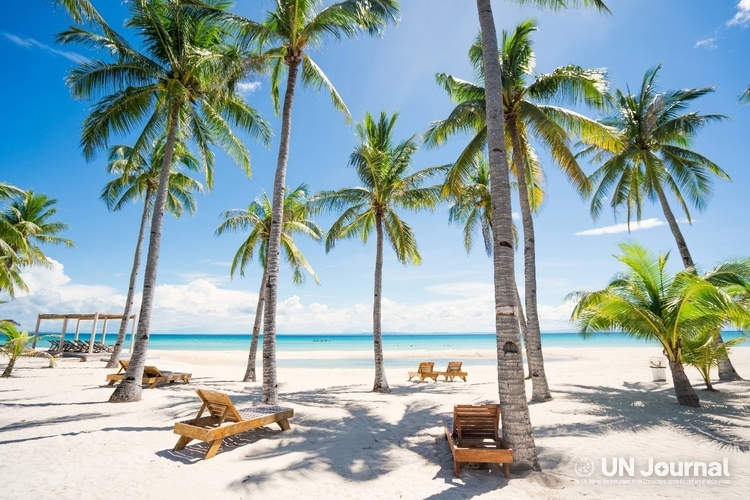
The ambassador also said, “We likewise look forward to more visitors discovering other destinations such as the Bicol Region and Davao which also showcase the unique heritage, culture, and cuisine of the Philippines.”
The following is the full-text of the UN Journal’s interview with Amb. Theresa Dizon-De Vega of the Philippines in Seoul.
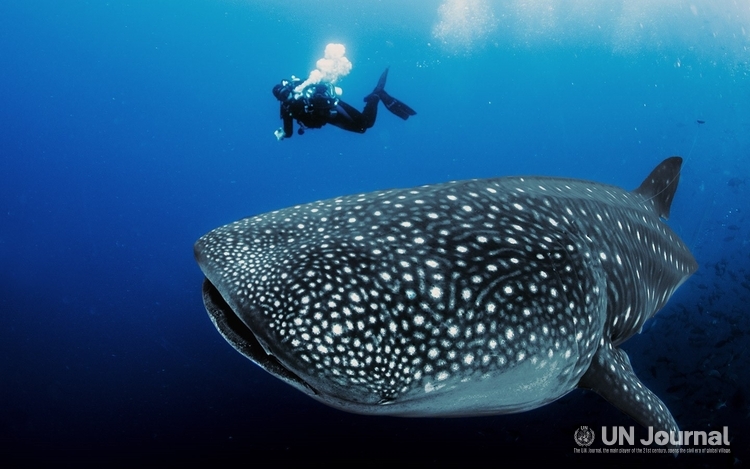
Question: Diplomatic relations between the Philippines and South Korea were officially formed in 1949. How has the relationship developed over time?
Answer: I have always said that Philippines-Korea relations is one that is issue-free. We have a long-standing partnership based on our shared sacrifices during the Korean War when the Philippines under Republic Act No. 573 of 1950 or the Philippine Military Aid to the United Nations Act paved the way for our country to send the Philippine Expeditionary Force To Korea (PEFTOK) composed of 5 BCTs with 7,420 soldiers for the period 1950-1955 during the Korean War.
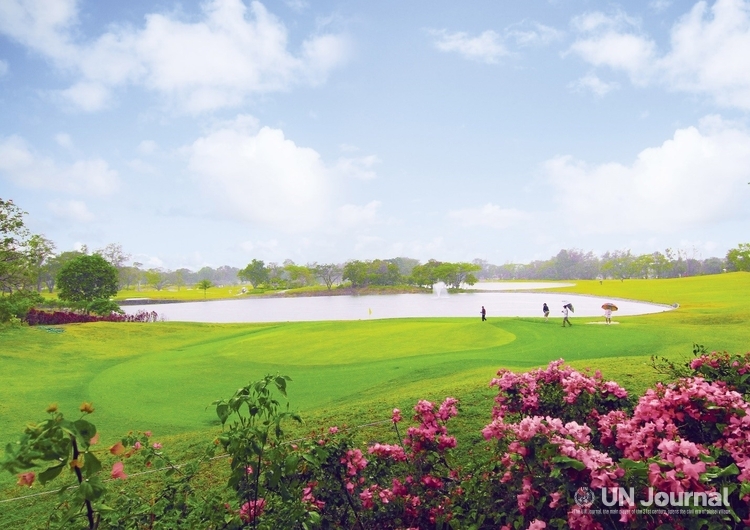
This was the fourth largest foreign contingent during the war. The Philippines likewise was among the most active voices supporting the establishment of the Republic of Korea. The bilateral relations between the Philippines and South Korea have always been characterized by mutual trust and support and commenced on 3 March 1949 when the Philippines became the fifth country to recognize the sovereign state of South Korea.
Our shared values and commitment to freedom, democracy, the rule of law, and respect for human rights have been the bedrock of our close cooperation. Therefore, we have always been and remain in a very good place in terms of moving our relations forward as we work for a peaceful, prosperous, and free region and world.
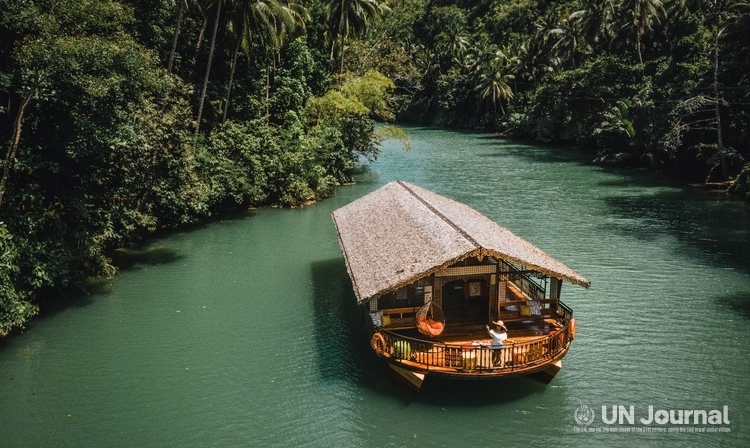
We therefore can work on substantial issues together not only in terms of enhancing our own relations but also in responding to the many concerns the world faces – the attainment of the SDGs (sustainable development goals), regional and global peace, security and stability, climate change, global health, food security, migration, digitalization, and bridging socioeconomic gaps, among others. We are currently working on the elevation of our relations to a strategic partnership which we are targeting to take place during the 75th year of our relations.
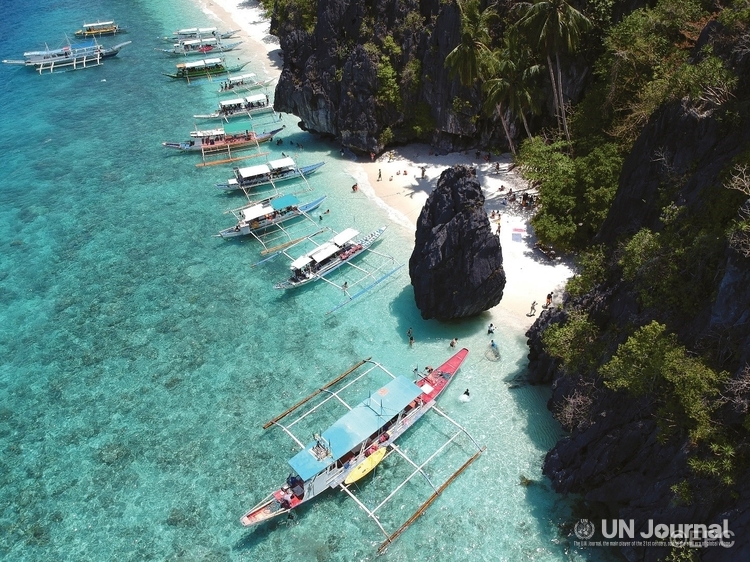
Q: Please introduce the National Day of Your Excellency's wonderful country.
A: The national day of the Philippines takes place every 12th of June. This date commemorates the declaration of Philippine independence from Spanish colonial rule. In 1898, General Emilio Aguinaldo, the Philippine revolution’s leader, declared independence in Kawit, Cavite, ending more than 300 years of Spanish colonial rule in the Philippine Islands. The following year he was declared President of the First Philippine Republic under the Malolos Constitution.
On this special day, Filipinos the world over commemorate and celebrate Philippine history, heritage, culture, tourism, and the arts. It is also an occasion to present the Philippines as modern, forward-looking country, contributing to the betterment of the global community based on our commitment to the ideals of freedom, respect for human rights, and our firm belief in the rule of law and peaceful settlement of disputes.
Q: What is the present volume of bilateral trade between the Philippines and Korea?
A: The Republic of Korea is a valued trade and investment partner of the Philippines. In 2022, it ranked 4th in terms of total bilateral trade valued at US$15.45 billion and 6th in total approved investments valued at US$90.62 million.
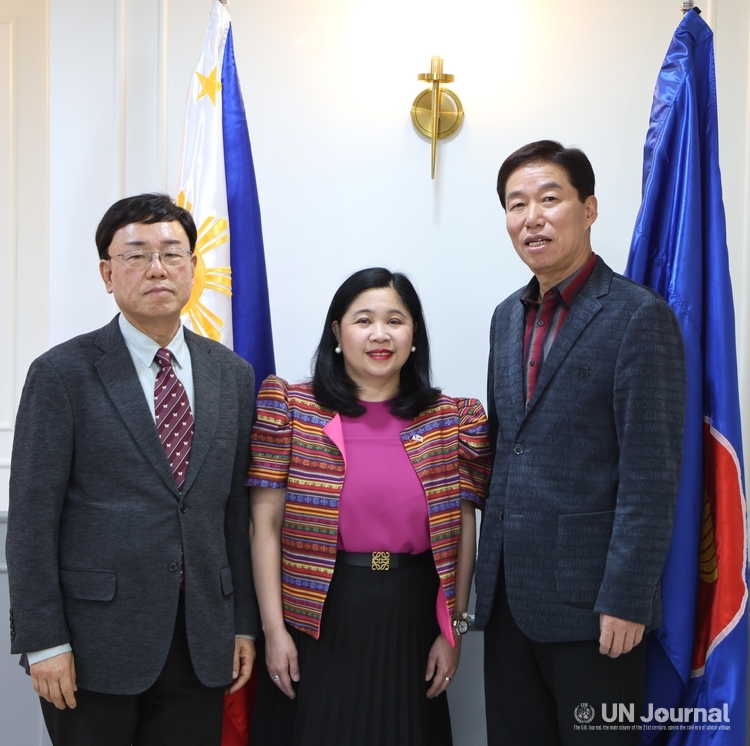
Q: Do you have any idea to boost exchanges between the two countries in the future?
A: One milestone towards enhanced economic partnership which we reached in 2023 year was the signing of the Philippines-Korea Free Trade Agreement. The FTA was signed on September 7, 2023 at the sidelines of the 43rd ASEAN Summit in Jakarta by Philippine Trade and Industry Minister Alfredo Pascual and Korea Trade Minister Ahn Duk Geun and witnessed by President Ferdinand R. Marcos Jr. and President Yoon Suk-Yeol.
In their bilateral meeting during the summit, President Marcos said the FTA will further enhance the vibrant relationship between the Philippines and South Korea. Our President further shared with President Yoon that “When I look at the involvement of Korea and the Philippines, I can say that the relationship between our two countries remains vibrant. And I think it is accelerating … I would like to take this opportunity to deepen further that relationship.”
For his part, President Yoon said that he is eager to elevate the partnership between the Philippines and South Korea to a strategic one as he emphasized that the PH-KR FTA “will set another important milestone” in our relationship. Secretary Pascual, for his part, likewise noted that the Philippines’ engagement with South Korea is built on shared values such as a firm belief in trade through market access, a rules-based international trading order, economic cooperation, and investments through collaboration in targeted sectors such as critical minerals and supply chains. All these values are reflected in the FTA.
In addition to the traditional positive impact associated with a FTA such as increased investments, market access, competitiveness, and job generation, the FTA is also envisioned to significantly contribute to the Philippines’ value proposition as a strong market for smart and sustainable investments, particularly as a manufacturing and export hub in the region. The enhance partnership supported by the FTA can lead to more strategic investments in priority sectors and industries for both the Philippines and Korea.
The Philippines’ Department of Trade and Industry has already begun actively promoting Korean investments particularly in industries or sectors where South Korea is considered a global technology leader, for example in battery manufacturing and vaccine production. Through the FTA, we expect to significantly boost opportunities in these sectors especially given the comprehensive framework for cooperation through the Economic and Technical Cooperation chapter.
For South Korea, one major area of interest is to be more competitive in the automotive and automotive parts sectors. A substantial number of priority tariff lines for Korea were eliminated under the FTA. This would create a huge opportunity for Korean manufacturers in this sector to access the close to 114 Million Philippine market based on projections when the latest populations figures are released. The Philippines is likewise hopeful that the tariff reduction will increase the interest of Korean companies to invest in the Philippines.
Aside from this sector, the Philippines looks forward to more interest in new areas of cooperation such as pharmaceuticals, biotechnology, critical minerals, energy, green technology including green transport, and the creative industries, among others.
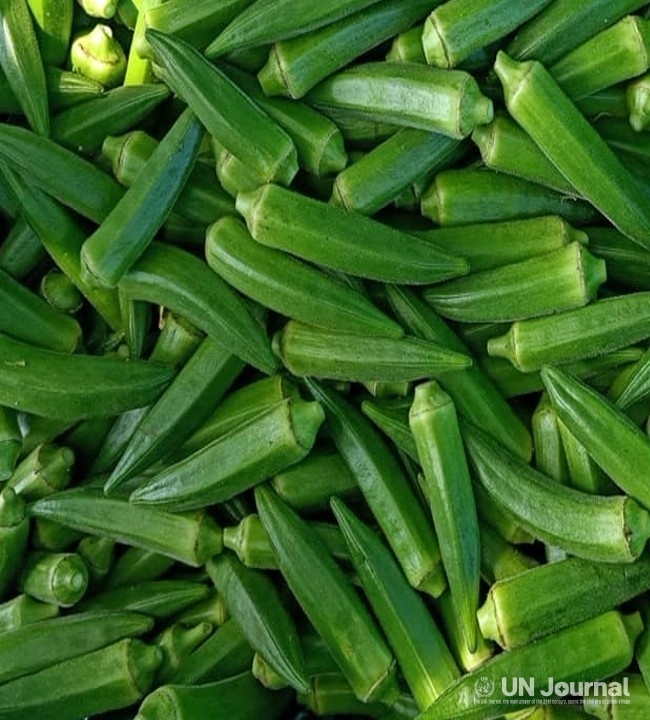
Q: What tourist attractions do you want to recommend to Korean tourists? Do you have any government programs to attract foreign tourists, including Koreans, to the Philippines?
A: For nearly a decade before the pandemic, Korea was the number one source of inbound international visitors to the Philippines peaking at just under 2 million visitors in 2019. We are pleased to share that Korea has regained the top spot again in the post-pandemic period. Specifically, South Korea remains the country’s top source market for foreign arrivals bringing in 1,439,336 tourists or 26.50 percent of the total as of the end of December 2023. This was announced by Philippine Tourism Secretary Cristina Garcia Frasco. Korea is followed by the USA, Japan, China, and Australia.
We attribute this not only to the short distance and accessibility of the Philippines from Korea – we are your closest neighbors in Southeast Asia - but also the shared values, welcoming atmosphere, and friendship we provide each other. Tourism is most impactful and effective if it works both ways. We have seen Korea rise in the estimation of many Filipinos as one of their most favored travel destinations in recent years due to the growing popularity of Korean culture, content, cuisine, and products. This augurs well for our respective tourism industries and our transportation sectors as more and more travel routes are created spurred by the interest in tourism. Tourism is a major growth driver and we will work hard for this sector to continue growing.
Allow us to also share with you the commitment of the Marcos administration to support the tourism sector through updating of visa policies, building of tourist rest areas, establishment of the first ever multi-platform tourist call center, construction of more tourism roads, development of cruise, education, medical, gastronomy, and sports tourism, expansion of dive tourism, and heritage and cultural tourism caravans for our international visitors.
The top tourism destinations in the Philippines for Korean visitors remain Cebu, Manila, Clark, Boracay, Bohol, and Baguio. We also note increased tourism to Palawan. All these places boost amazing leisure, beach, and nature tourism sites which many Koreans into eco-tourism, sports, adventure tourism, and diving can enjoy. We likewise look forward to more visitors discovering other destinations such as the Bicol Region and Davao which also showcase the unique heritage, culture, and cuisine of the Philippines.
The Philippines through our Department of Tourism Office in Seoul will continue to conduct promotional activities both physical and online. For example, we just launched a digital campaign in many strategic transportation hubs in key cities in Korea. There will likewise be digital pop-ups and more tourism familiarization and promotion activities in 2024.
Q: Are there any programs of your embassy planning to celebrate the 75th anniversary of diplomatic relations this year?
A: There are a number of activities planned for the 75th anniversary celebration commencing in March – from book projects on both our shared history and engagement as well as on people-to-people and migration narratives. There are likewise cultural events, sports exchanges, youth exchanges, academic programs, film and the creative arts activities, Discover Philippines digital pop events, among others, throughout the commemorative year. A formal launch of the 75th anniversary of relations is scheduled in early spring to inform the public and our friends and partners in Korea about the different commemorative programs.
The different activities for the anniversary celebration will serve as platforms to look back on our long-shared history of sacrifice and commitment to common values which form the bedrock for forward-looking and future strategic partnership across all sectors of cooperation.
Q: What are the most important festive days in your country? Please elaborate.
A: Among the important festive days in the Philippines aside from the commemoration of Philippine Independence on 12 June include, Araw ng Kagitingan (Day of Valor) held on 09 April which honors Filipino veterans; National Heroes Day held on 26 August which honors Filipino heroes; All Saints Day on 01 November which is a Catholic tradition setting aside a day to honor the dearly departed by laying flowers and offering candles and prayers for the deceased by members of their families and close friends; Bonifacio Day on 30 November commemorating the legacy of one of the country’s heroes who led the revolutionary movement against Spanish colonial rule Andres Bonifacio; and Rizal Day on 30 December commemorating the martyrdom of the Philippines’ National hero Dr. Jose P. Rizal who was executed by the Spanish colonial government for his role in the independence movement in the Philippines.
Other important festivities or important seasons in the Philippines as a majority Roman Catholic country are Holy Week which takes place during the Lenten Season in either March or April and the longest Christmas Season in the world which already starts as early as September, reaching its peak in the month of December up to the first week of January. In the spirit of inclusivity, the Philippines likewise celebrates the Lunar New Year and Muslim feasts of Eid Al-Adha and Eid Al Fitr.
Q: Please tell me what was the most rewarding or happiest moment while you are working as a diplomat.
A: The most rewarding part of being a diplomat for me is being able to help successfully manage high-level exchanges of visits such as those between leaders of countries as these are important and rare opportunities to elevate relations through the engagement of the highest officials representing states. Likewise, being able to assist Filipino nationals who are in distress navigate and resolve challenges is also a most rewarding aspect of our profession.
Q: Please introduce yourself in detail, including your career, family and hobbies.
A: I always say I am accidental diplomat as I had earlier envisioned a career in the academe and had already taken initial steps towards that professional direction. However, fate deemed otherwise and I have been serving in my country’s foreign service for nearly three decades while also having received training as lawyer in my country. This path has taken me to six (6) countries: Mexico, Hong Kong SAR China, the United Kingdom, the United States of America, Germany, and South Korea – all of which in their own unique ways have enriched my professional growth.
I am one half of diplomatic couple, my husband, Eduardo De Vega, is a fellow diplomat, lawyer, Ambassador, and currently a Vice Minister of the Philippine Department of Foreign Affairs. We have one daughter, Montserrat, who has experienced living in many parts of the world.
Due to work, I don’t have a lot of time to indulge in my hobbies and interests but when I do, I like to read, listen to classical and jazz music, dabble in water-color painting, watch films, and take walks with my daughter when the weather is fine.






